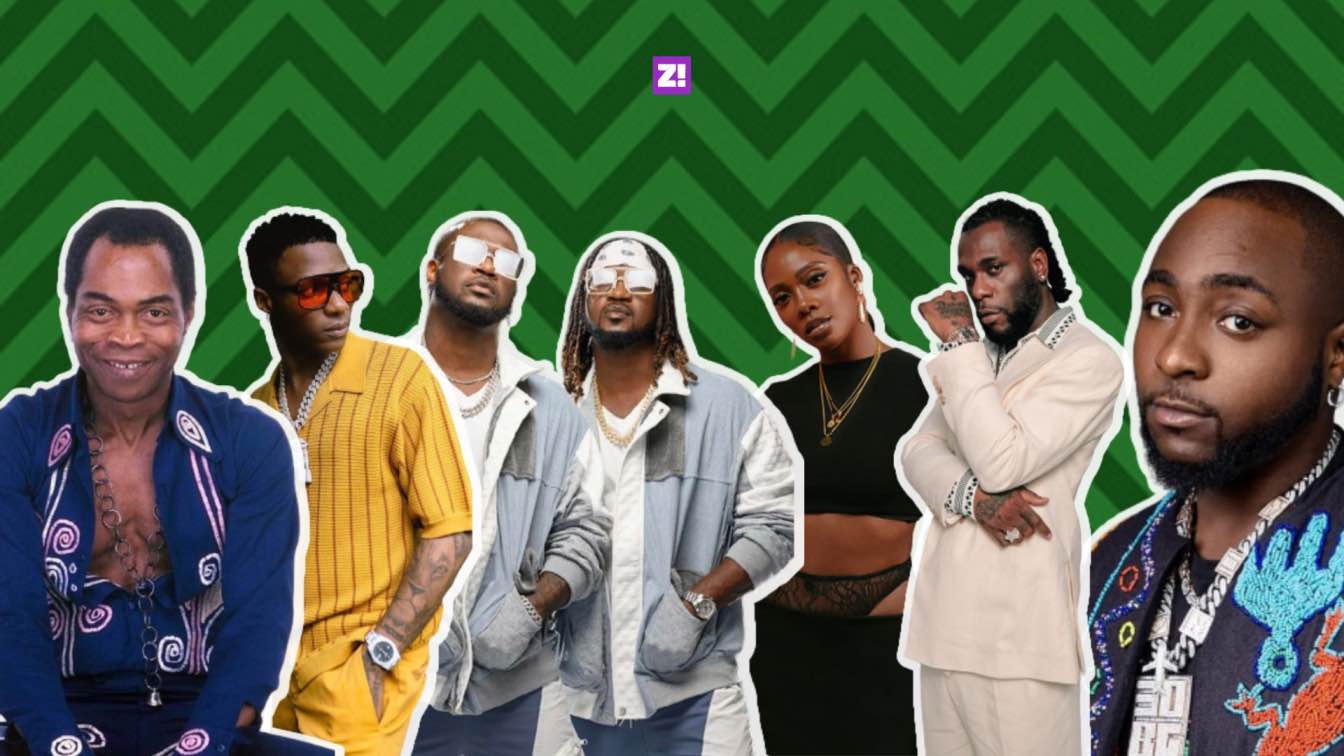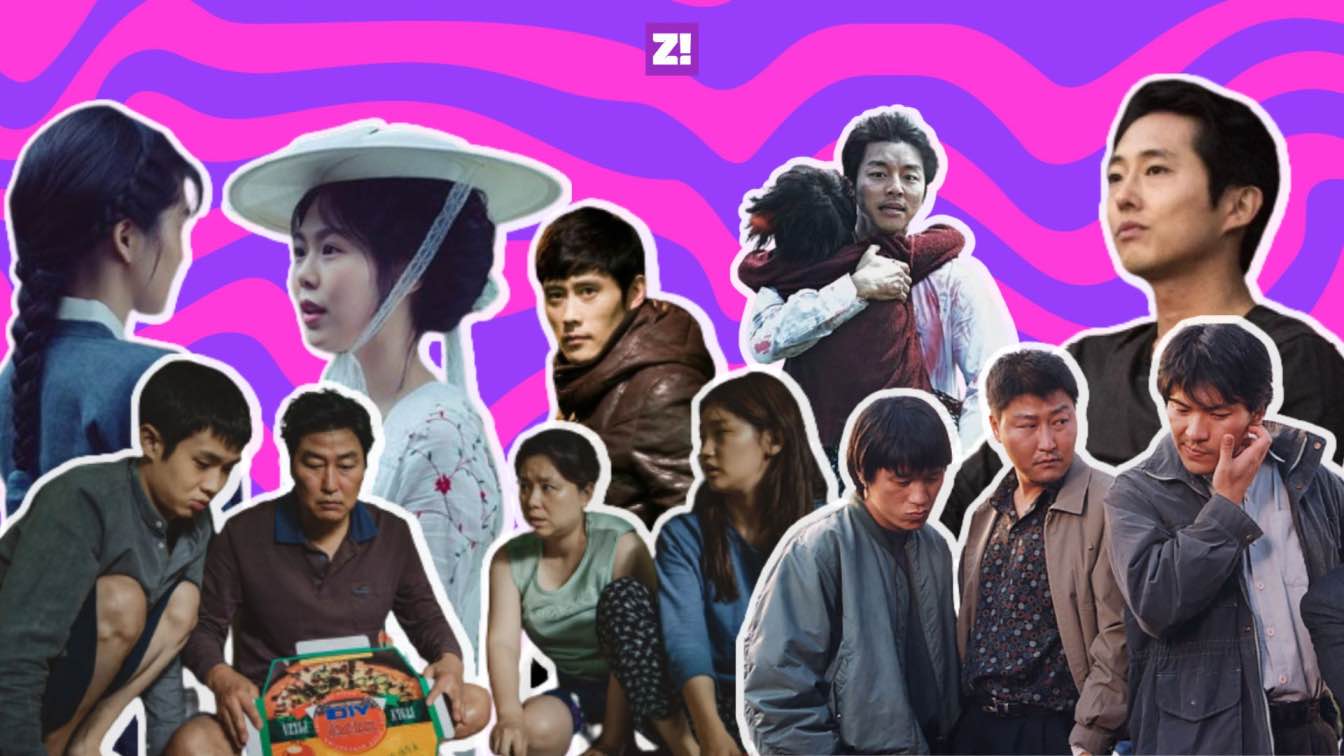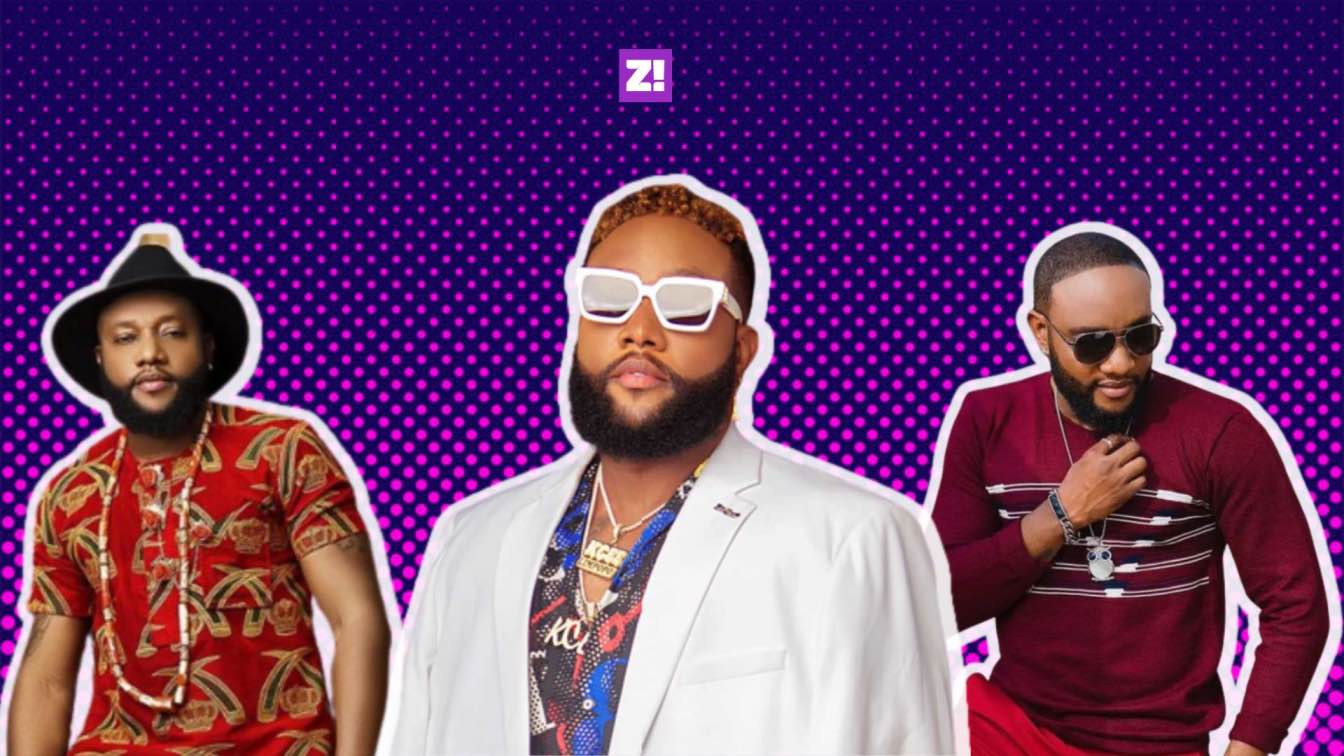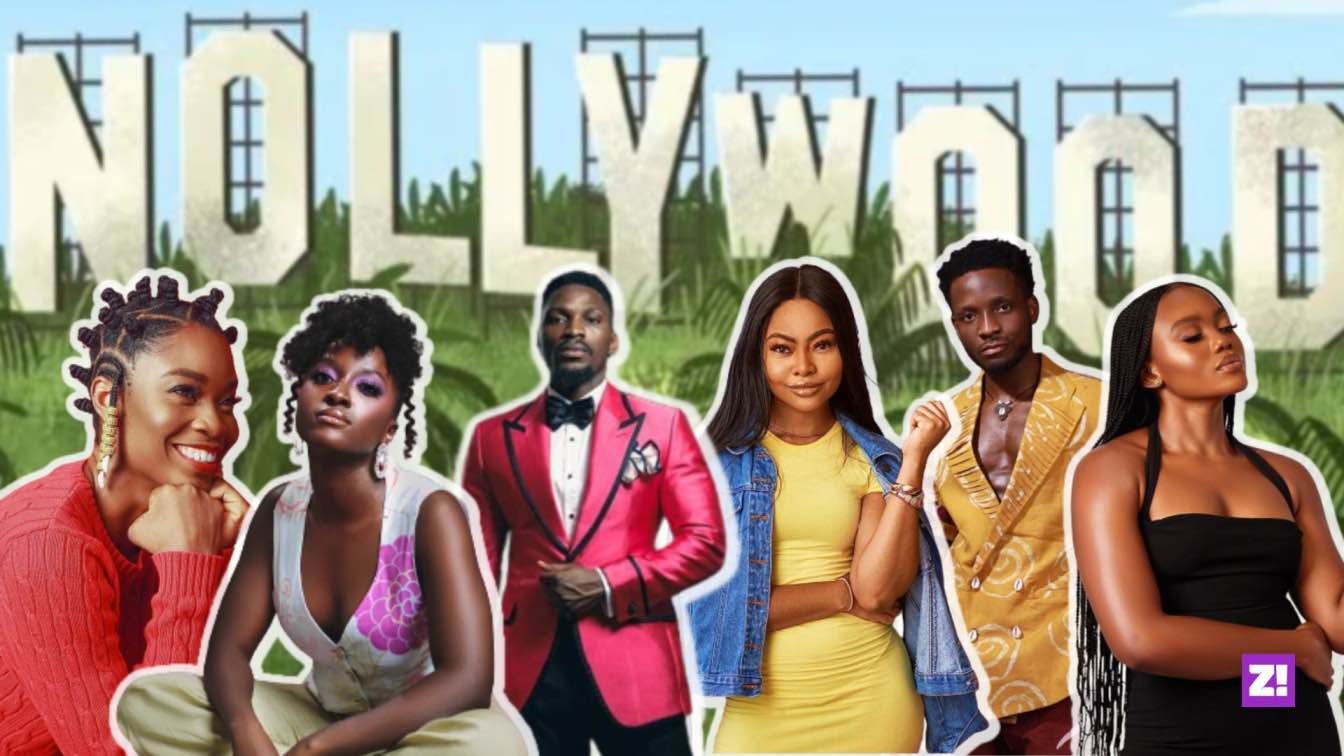What does it mean to be a man? Surely, it’s not one thing. It’s a series of little moments that add up. Man Like is a weekly Zikoko series documenting these moments to see how it adds up. It’s a series for men by men, talking about men’s issues. We try to understand what it means to “be a man” from the subject of the week’s perspective.
Aaron Ahalu refuses to be bothered by the concept of masculinity. Joining me for a virtual chat from the beach where he’s celebrating his birthday, the creative director and photographer tells me his entire existence is somehow a middle finger to society. “I do what I want because I want to”, he says. But being this self-assured in a place like Nigeria doesn’t come without consequences.
In this episode of Man Like, he talks about finding freedom of expression in makeup and fashion, breaking out of his dad’s control and how he deals with pushback from people uncomfortable with his look.
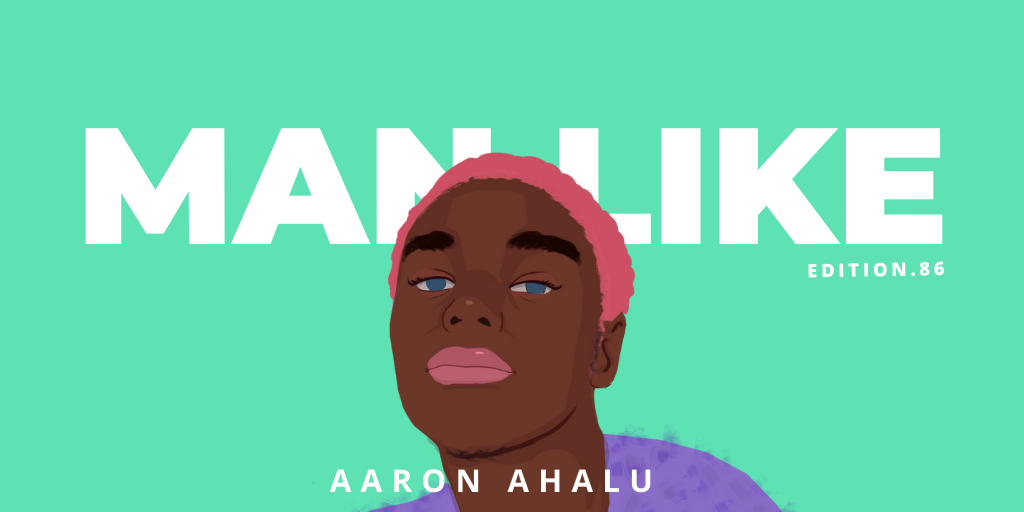
What was growing up like for you?
My childhood was anything but conventional. My parents were never married, so I spent most of my childhood with my mum in Jos while my dad lived in Lagos.
In Jos, I was surrounded by many women who taught me a lot about acceptance and what it means to be a thoughtful person. I wore one of my aunt’s heels when I was about eight and tumbled down a flight of stairs into the living room. My mum and her sisters had never seen me in heels before, but instead of freaking out, they laughed about it. That was my first experience with not being judged. I’ll never forget it.
As for my dad, I didn’t meet him until I was 13.
Why?
I was born out of wedlock, and because of that, my dad didn’t feel indebted to me. Also, my mum was doing better than him financially, so it just made sense for me to live with her.
But the year I turned 13 was when the crisis in Jos began to intensify, and my mum thought it best to send me to Lagos to live with my dad. She mentioned she didn’t want to burden any of her relatives, so she called my dad and sent me over. When my aunt and I got to the park, she was like, “Oh, there’s your dad,” and I remember just looking at all the random men there, trying to figure out which one was my dad. He eventually walked up to both of us.
Did he meet your expectations? What was your expectation?
I’d never seen this man before, and as a material gworl, I was hoping not to end up with a raggedy-looking dad. He looked really good in his white jalabiya, which was a relief. It was a weird first encounter. I didn’t know what to ask him. He didn’t know what to ask me either. We just rode in silence until we got home. And even then, we never had a proper conversation during the two months I spent with him.
What happened during those two months?
Nothing spectacular. When we got to the house in Lagos, I realised my dad was married. He showed me where I’d sleep and introduced me to my half-siblings, which was weird because I was meeting these people for the first time, and now I had to call them “brother” and “sister”. I was also very frustrated because, like I mentioned earlier, he didn’t have as much as my mum financially, so I had to manage and share a lot of things with my half-siblings.
Ironically, the best part of my stay with my dad was meeting and bonding with them. This was the first time I had other children who looked up to me because I was older, and we all got along. Given a choice, I doubt I’d choose to meet my dad under the circumstances we met. But they’re the one thing I wouldn’t change about that trip.
After two months with my Dad in Lagos, my mum sent for me after things calmed down and I went back home to Jos.
Hmm. Did you and your mum talk about your time in Lagos?
We spoke about it briefly, but it was mostly me complaining about how jaga jaga my dad’s house was compared to hers. LOL. She still teases me about the way I described his house.
After my return to Jos, one thing that changed was my dad started to communicate with me more often. He eventually moved to Abuja and I moved in with him. Living with him again, we got closer until things fell apart between us.
Let’s not rush. Why did you move in with your dad again after the last time?
I didn’t have a choice, sis. My mum was tired of my bullshit, so she sent me to go live with him.
LOL. What did you do?
I was pretty rebellious as a child. I got expelled from school for jumping the fence and this was like the third secondary school I was attending. I’ve never been a fan of rules and regulations, yet they kept sending me to boarding schools rife with oppression and people I didn’t want to be around. I think my mum was just over everything, considering this was my third expulsion. I had to go live with my dad, and that’s how I started attending a day school, which was a better fit for me.
Did anything change when you moved in with your dad for the second time?
It was a completely different experience. I was older and more present, which made everything feel better. But I’m mostly glad for being old enough to provide emotional support for my younger step-siblings. We had bonded, so it wasn’t all fresh and confusing like before. Abuja was fun for me because I had them around. I also got to finish secondary school, attend university, and eventually get a job. Life was good. Until it wasn’t.
How so?
The older I got, the more I started changing in terms of experimenting with fashion and going out to events. My dad saw me as this “good boy”, so the change was too much for him to handle. It’s not like I became bad. I just started to evolve into who I am today. My dad became very good at making me feel small. He did that to my siblings as well and it messed us up.
The oppression I’d complained about in boarding school moved to my own house from my family. My dad and step-mum couldn’t handle that I wasn’t a child anymore, so I had to break free.
Damn
The fact that he couldn’t control who I wanted to be as a person triggered a weird anger in him. I used to go out a lot back then because I was getting into the events business space I currently work in, and I remember coming home one day when I was about 24, just to find all my belongings thrown out of our house. Even my fucking mattress.
I thought it was stupid, so I tried to let myself in, but they refused. At some point during the whole back and forth, my dad had police officers drag me to a police station, where I was beaten and threatened. All of that shit was toxic AF, and I couldn’t take it anymore. If they couldn’t handle who I was becoming, there was no point staying with them, so I left.
I’m so sorry you went through all that. Did your mum know about this?
Thank you. I wanted to reach out to her that day, but my dad had seized my phone. I later got through to her, and she was pissed. She tried to call her contacts in the police to get back at my dad. That was the most challenging part because I could hear the pain in her voice. All of it hurt her. I’ve tried to repress these memories and move on from them.
I get that. So what did you do when you left?
I had some savings from my job, so I moved to Lagos where I stayed with my aunt until I could get back on my feet. I later moved in with some friends here and there, and now, I have a place I share with my friends. Things were slow, but I somehow pulled through.
That’s great to hear. How have all of these experiences influenced who you are today?
I think it has made me a better judge of character and energy. I meet people now, and I can read them better because I’ve experienced the good and the bad. I can’t fully explain it, but I get people now.
We are shifting gears. Let’s talk about fashion and beauty
Yassss.
How has having a style that doesn’t conform to society’s definition of masculine influenced your interaction with people?
Hmm. So I like to tell people there’ll always be barriers to happiness in life. I’ve met several people who disrespected me based on my outfit and appearance. Today’s my birthday, and police officers stopped and searched our boat on the way to the beach. Because I was wearing makeup, one of them threatened to slap me and throw me into the water. It’s nothing new.
But one thing I’ve told myself is never to let these things get to me or prevent me from expressing my true self. I get a lot of love and support from the people around me. I refuse to let the negative reactions I get drown out the love because I have more of that in my life.
So you’ve never felt the need to fit into the mould?
I’m human, and sometimes, it happens. I’ve walked into a place and thought, “Oh, shit! Maybe I shouldn’t have worn this today.” Or the times when I’m walking on the street and get catcalled. It’s unintentional. But, yeah, I try to get over those feelings as soon as possible. I also try to avoid spaces where I’m not welcome.
Preach! Why is your expression of fashion and beauty an important part of your identity considering the backlash it comes with?
For me, it’s all about how I’m feeling and finding creative ways to express that. I could wake up in the morning, get my face beat and sit at home. I’m doing it because I feel like having fun with my looks and also because I can. I don’t take life or myself too seriously.
I also don’t believe anything is gender-specific regarding fashion and beauty. Everything belongs to everyone because we’re all human before anything else. We have these systems that have kept us down for so long, believing that we should be one way or another. Who makes the fucking rules? I wear what I want and use makeup because I want to.
Also, my pronouns are he/him/they. The “they” is there because I can be whoever I want to be.
Inject it! Your thoughts make me really interested in how you view masculinity
What’s that? I feel like that term is stupid. It’s such a weird question. I don’t know what masculinity is abeg.
Fair. So it’s pride month! What does this period signify for you?
It means a lot to me, but I also feel like it should mean more to other people. June is the one month in a year when we celebrate people who are continuously marginalised. It’s an important period for me because I also get to celebrate with an annual pride ball that I’m excited about.
Ouu. Invites for me?
Yes, of course!
ALSO READ: I Was Labelled Gay Before I Even Understood What It Meant — Man Like Richard Akuson

